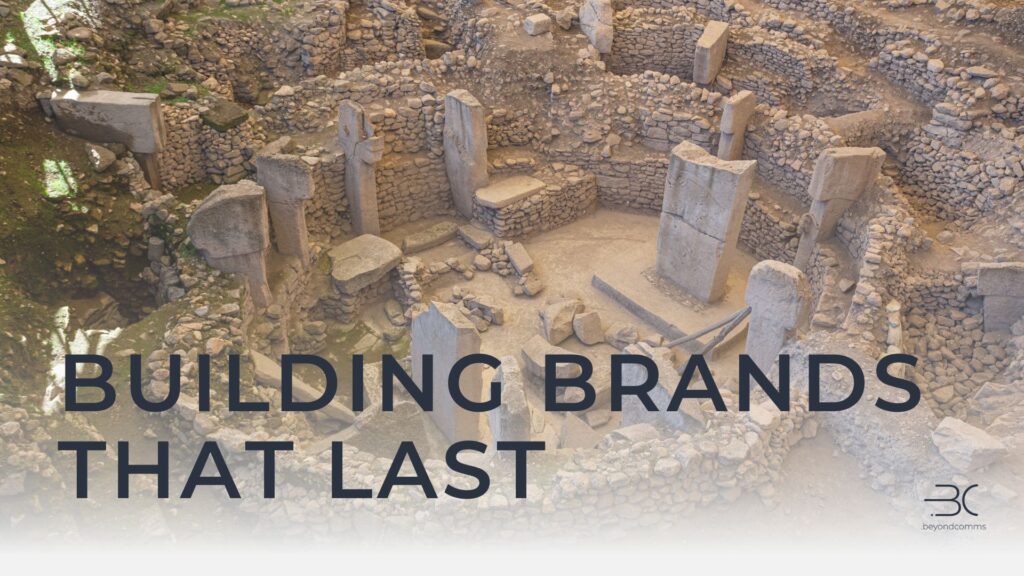
This week, we’ll dive into the difference between a business that’s inseparable from its founder and one that becomes a living entity with a distinctive presence.
Personal vs. Collective
While a personal brand naturally flows from an individual’s purpose and values, a company brand requires a different approach. Companies, as legal entities, don’t inherently possess purpose. Instead, they need a clear mission and value propositions that can connect with the individual purposes of employees and audiences. One way to think about a company’s brand is a collective experience of people inside and outside of the business.
Building a Company Brand
Creating a company brand that can exist beyond any single person requires a rhythm of its own:
- Starting from the inside out: The brands that resonate the most amplify what already exists within the organization – its strengths, culture, and collective expertise. This creates a foundation that rings true because it’s based on reality, not aspiration. Plus, it creates an environment in which teams can connect more easily with their work.
- Harmonize with external needs: Once you understand your internal truth, find how it intersects with what your audience needs and values. Your positioning should create a resonance between internal capabilities and external demands. This ultimately is your unique value proposition that sets you apart from competitors.
- Create systems and frameworks: Document your strategy through guidelines, templates, and processes that anyone can follow. These become the score that allows everyone to play the same composition consistently.
- Establish daily rhythms: Brand building happens in the everyday moments. Implement regular practices across all functions – from how sales advisors present solutions to how operations communicate internally. Every action should reinforce your company’s distinct voice.
Some Things are Out of Your Control
Remember that ultimately, your brand exists in the minds and hearts of your audience. While you can influence perceptions through consistent expression, the final interpretation belongs to them.
Like a musical composition, you can write the notes, set the tempo, and indicate the dynamics – but how each listener experiences the performance is uniquely their own. Your responsibility is to play with consistency and authenticity while accepting that the reception will vary.
Founders who successfully build enduring company brands understand this fundamental shift from personal expression to collective identity. They see themselves not as the permanent face of the company, but as the initial conductor who will eventually pass the baton.
Putting it into Practice
Take 15 minutes over the weekend to think about:
- What strengths and values already exist within your organization that can be amplified?
- Where do these internal truths intersect with what your audience needs?
- What one process could you document this week to ensure brand consistency?
Building a company brand that stands independently starts with these fundamentals – identifying what’s already true, finding where it meets market needs, and creating systems to express it consistently.
